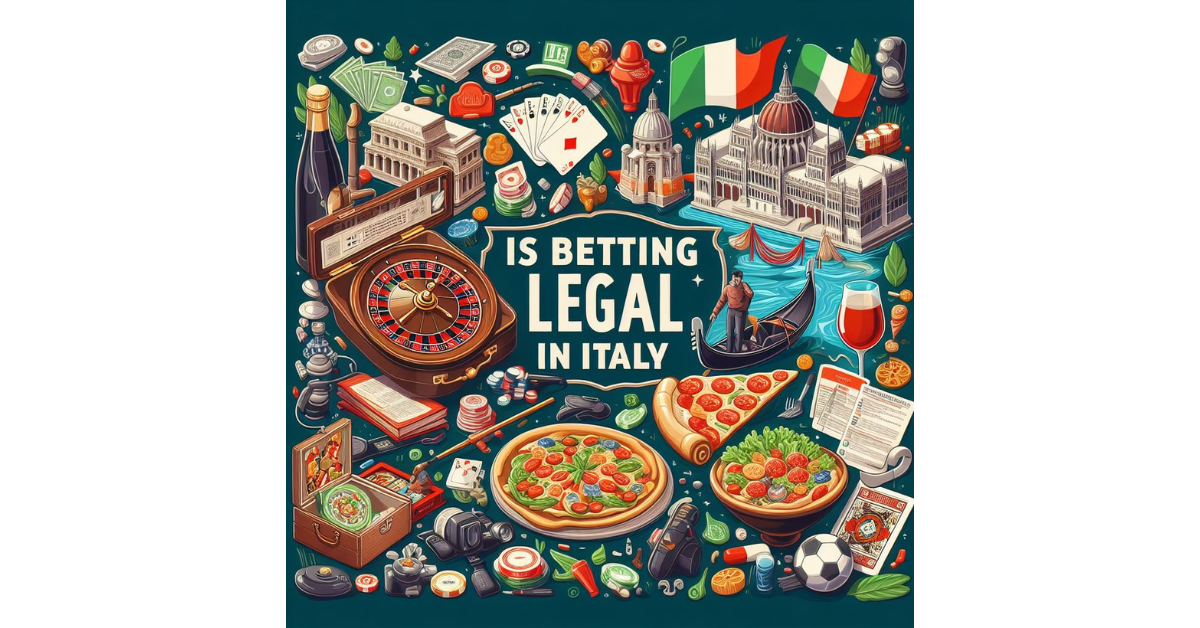Betting laws in Italy
In Italy, betting laws have evolved over the years to create a regulatory framework that governs all forms of gambling activities. The Italian government introduced the first laws to regulate betting in the early 20th century, aiming to combat illegal gambling and ensure fair and transparent gaming practices. These initial laws laid the foundation for the current legal framework that oversees the betting industry in Italy today.
Italian betting laws encompass a wide range of activities, including sports betting, horse racing, and casino gambling. The regulatory authority responsible for overseeing these activities is the Italian Gambling Authority (ADM), which ensures that operators comply with licensing requirements, consumer protection measures, and anti-money laundering regulations. Through a combination of strict laws and ongoing oversight, Italy has created a safe and controlled gambling environment for both operators and players alike.
Regulated gambling activities in Italy
In Italy, regulated gambling activities are overseen by the Customs and Monopolies Agency, ensuring fair play and adherence to legal requirements. The most popular form of regulated gambling in the country is the state-sponsored lottery, which offers a variety of games to the public, with proceeds contributing to social initiatives and cultural projects. Additionally, the Italian government permits sports betting, both online and in designated retail locations, with licensed operators abiding by strict guidelines to maintain a transparent and responsible environment.
Casinos are another regulated gambling activity in Italy, with several establishments operating under government-issued licenses in various regions of the country. These casinos offer a range of games, including blackjack, poker, and roulette, with regulations in place to protect players and prevent problem gambling. Furthermore, the Italian government has enacted laws to combat illegal gambling practices, imposing hefty fines and penalties on unlicensed operators to uphold the integrity of the regulated gambling industry.
Overview of Italian gambling regulations
The Italian government has established a comprehensive regulatory framework to govern gambling activities in the country. The regulatory body responsible for overseeing the sector is the Agenzia delle Dogane e dei Monopoli (ADM), which is tasked with issuing licenses, monitoring compliance, and enforcing regulations. The main objective of these regulations is to provide a safe and fair gambling environment for both operators and consumers.
Italian gambling regulations cover a wide range of activities, including sports betting, casino games, poker, bingo, and lotteries. Operators must adhere to strict guidelines regarding player protection, responsible gaming practices, and anti-money laundering measures. Additionally, the regulations set out specific requirements for advertising, taxation, and reporting obligations to ensure transparency and integrity within the industry.
History of betting laws in Italy
Betting laws in Italy have a long and complex history that dates back centuries. The regulation of gambling activities in Italy has evolved over time as different rulers and governments have sought to establish control over this popular pastime. The origins of Italian gambling regulations can be traced back to the Roman Empire, where games of chance were already prevalent.
During the Middle Ages, various decrees and laws were enacted to govern betting activities, reflecting the moral and religious attitudes of the time. The Renaissance period saw a surge in the popularity of gambling among the Italian elite, leading to the establishment of more formal regulations to control the industry. Over the centuries, Italy has continued to adapt its betting laws to reflect societal changes and technological advancements, ensuring that the industry remains both regulated and accessible to the public.
Types of legal betting in Italy
When it comes to legal betting in Italy, the options are diverse and cater to a wide range of preferences. One of the most popular forms of legal betting in Italy is sports betting. Italians are passionate about sports, especially football, and betting on matches and tournaments is a common pastime. The Italian government has established regulations to ensure fair play and prevent match-fixing in sports betting.
Another form of legal betting in Italy is horse racing betting. Horse racing has a long tradition in Italy, and many people enjoy placing bets on races both locally and internationally. The Italian government closely monitors horse racing betting to maintain the integrity of the sport and protect bettors from fraud. Additionally, virtual sports betting has gained popularity in recent years, allowing Italian bettors to wager on computer-generated sporting events around the clock.















